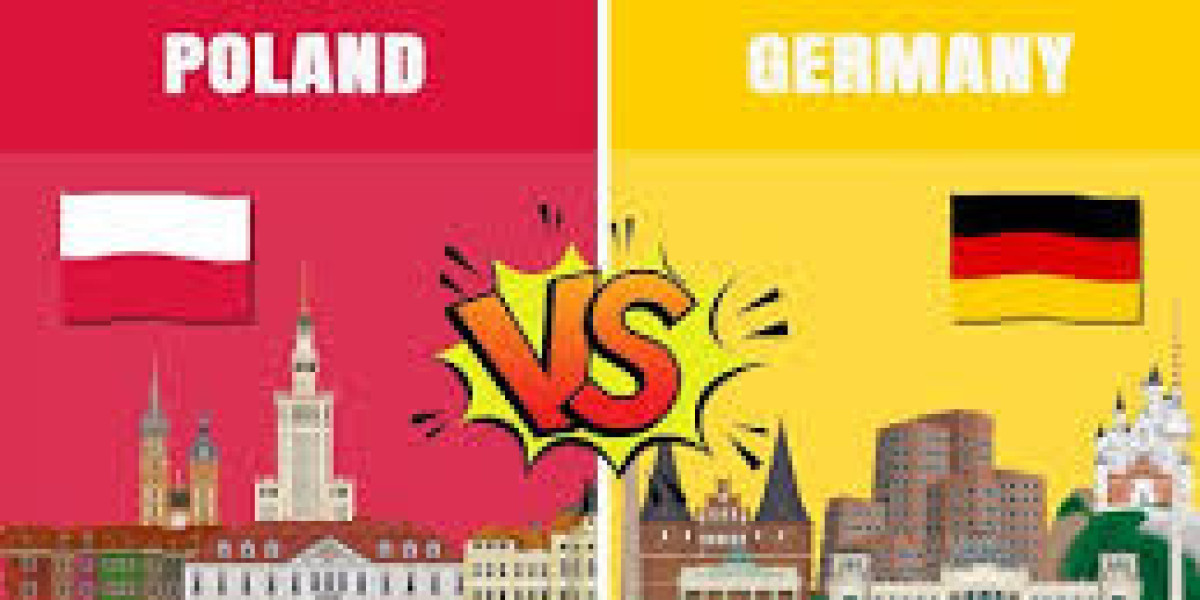Introduction
Are you torn between choosing Poland or Germany for your university education? With Europe becoming a hotspot for international students, Poland and Germany often top the list for affordable and quality education. But which one is the right fit for you? Let’s dive in and compare these two fantastic countries to help you make an informed decision!
Overview of the Education Systems
Poland’s Higher Education Landscape
Poland is an emerging destination for students, offering over 500 universities with programs in English and Polish. Known for its rich history and cultural diversity, Poland’s universities are climbing the global rankings.
Germany’s Renowned University System
Germany, often dubbed the “land of ideas,” boasts a robust education system with over 400 universities, including globally renowned ones like Heidelberg, LMU Munich, and TU Berlin. It is famous for innovation and research-oriented learning.
Tuition Fees and Cost of Education
Affordable Tuition in Poland
In Poland, tuition fees for international students range from €2,000 to €5,000 annually, depending on the program and university. For EU citizens, the costs are even lower, and scholarships make it more affordable.
Germany’s Tuition-Free Public Universities
Germany offers tuition-free education at University in germany, but international students might pay a nominal administrative fee of €100–€300 per semester. This makes it a dream destination for those on a tight budget.
Additional Fees and Hidden Costs
Both countries have hidden expenses, like health insurance and registration fees. It’s essential to plan for these to avoid surprises.
Living Costs for Students
Cost of Living in Poland: Budget-Friendly Options
Poland is one of the most affordable countries in Europe. Monthly expenses, including rent, food, and transportation, typically range between €500 and €700. Cities like Warsaw and Krakow offer vibrant student life without breaking the bank.
Living Expenses in Germany: What to Expect
In Germany, the cost of living is higher, with students spending €800–€1,200 per month. However, cities like Leipzig and Dresden are more budget-friendly compared to Munich or Frankfurt.
Language and Medium of Instruction
Polish Universities: Studying in English vs. Polish
Many Polish universities now offer programs in English, but learning some Polish can help with daily life and part-time jobs.
German Universities: English-Taught Programs and Language Barriers
Germany offers a wide range of English-taught programs, but some advanced courses require proficiency in German. Learning the language can also boost employability.
Quality of Education
Poland’s Emerging Global Reputation
Poland is steadily improving its education standards, especially in fields like engineering and medicine. Universities like Jagiellonian University are gaining international recognition.
Germany’s Worldwide Recognition and Rankings
Germany is a global leader in education, consistently ranking in the top 10 worldwide. Degrees from German universities are highly respected in industries like engineering, IT, and business.
Student Life and Campus Experience
Campus Life in Poland: Vibrant Yet Affordable
Poland offers a lively campus atmosphere with a mix of cultural festivals, student clubs, and affordable dining options. Universities often have active student unions organizing events that bring local and international students together.
German Campuses: Innovation and Inclusivity
In Germany, campuses are hubs of innovation, with cutting-edge research facilities and diverse student communities. German universities often have partnerships with industries, providing students with hands-on learning opportunities.
Job Opportunities for Students and Graduates
Part-Time Work Opportunities in Poland
International students in Poland can work up to 20 hours per week during the academic year and full-time during holidays. While opportunities exist, wages may be modest compared to Western Europe.
Germany’s Robust Job Market for Graduates
Germany has one of the strongest economies in Europe, offering numerous part-time jobs for students and excellent post-graduation opportunities in engineering, healthcare, and IT. Many universities also have career services to help students secure internships and full-time roles.
Cultural Experience and Social Life
Living in Poland: Rich History and Friendly Vibes
Poland is a blend of medieval charm and modernity. Cities like Krakow and Warsaw are steeped in history, offering museums, art galleries, and picturesque old towns. Poles are known for their hospitality, making international students feel at home.
Germany’s Blend of Tradition and Modernity
Germany is famous for its vibrant festivals like Oktoberfest and Christmas markets, alongside modern urban lifestyles in cities like Berlin and Hamburg. The country’s multicultural environment ensures that international students feel welcome.
Scholarships and Financial Aid
Scholarship Opportunities in Poland
Poland offers several scholarships for international students, such as the Ignacy Łukasiewicz Scholarship Program. Universities also provide merit-based scholarships to ease financial burdens.
Scholarships Available in Germany
Germany’s DAAD (Deutscher Akademischer Austauschdienst) is a major scholarship provider, offering funding for undergraduate, graduate, and doctoral students. Many universities also have in-house scholarships.
Visa Process and Post-Study Work Permits
Poland’s Student Visa and Stay Back Options
Obtaining a student visa for Poland is relatively straightforward. After graduation, students can apply for a temporary residence permit to look for jobs or start a business.
Germany’s Visa Process and PR Pathways
Germany offers a streamlined visa process for international students. Graduates can apply for an 18-month job-seeker visa, with pathways to permanent residency if they secure employment.
Global Recognition of Degrees
How Degrees from Poland Fare Internationally
Polish degrees are gaining recognition globally, especially in fields like medicine and IT. However, they may not yet have the universal prestige of degrees from Western Europe.
Germany’s Prestige on the Global Stage
A degree from a German university is highly valued worldwide. Industries across the globe actively recruit German-educated professionals, making it a top choice for career-focused students.
Strengths and Weaknesses of Each Country
What Makes Poland Attractive for Students?
- Affordable tuition and living costs
- Growing reputation in higher education
- Rich cultural and historical experiences
Why Germany is a Global Education Powerhouse
- Tuition-free public universities
- Globally recognized degrees
- Strong job market and post-study opportunities
How to Choose Between Poland and Germany?
Aligning Your Goals and Preferences
Your decision should depend on factors like budget, career goals, and preferred lifestyle. Poland might be better for students looking for affordability and cultural immersion, while Germany suits those seeking prestige and strong career prospects.
Factors to Consider: Cost, Career, and Culture
Ask yourself: Do I prioritize lower living costs, or am I willing to invest more for a globally recognized degree? Do I value a rich cultural experience or prefer a fast-paced, innovative environment?
Conclusion
Both Poland and Study in Germany have unique strengths as educational destinations. Study Abroad for Free. While Poland offers affordability and cultural charm, Germany stands out with its tuition-free universities and global prestige. Ultimately, the right choice depends on your priorities, whether it’s budget, career opportunities, or personal interests.
FAQs
What are the main differences between studying in Poland and Germany?
Poland is more affordable, while Germany offers globally recognized degrees and stronger career opportunities.
Are degrees from Polish universities recognized worldwide?
Yes, especially in fields like medicine and IT, though they may not have the same prestige as German degrees.
Do I need to learn Polish or German to study in these countries?
While many programs are in English, learning the local language can enhance your experience and job prospects.
What are the living expenses for students in Poland vs. Germany?
Poland is cheaper, with monthly expenses ranging from €500–€700, compared to Germany’s €800–€1,200.
Which country offers better career opportunities for international graduates?
Germany has a stronger job market and better post-study work opportunities, especially in engineering, IT, and healthcare.








